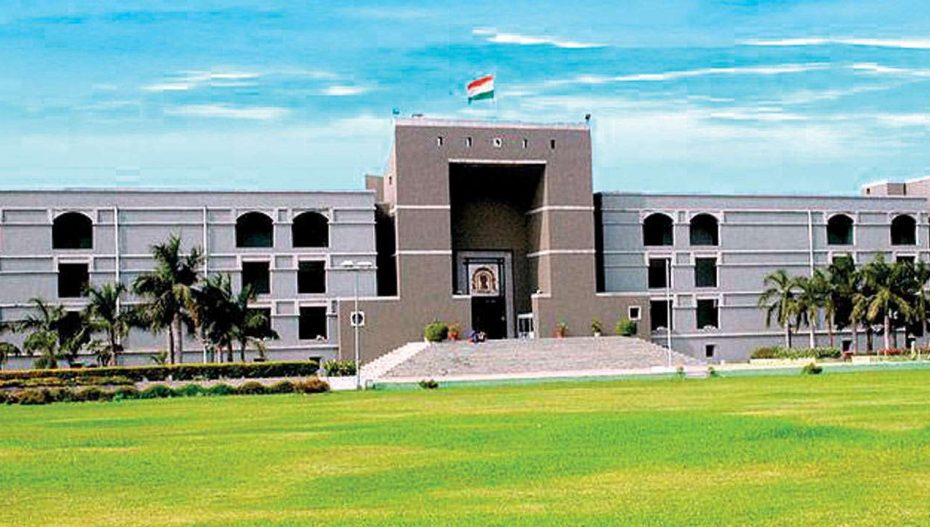The Gujarat High Court, while hearing a Public Interest Litigation (PIL) on September 20, expressed dissatisfaction with the state government’s response regarding the implementation of child protection laws.
The court noted that specific questions raised in its earlier orders—pertaining to the functioning of the State Commission for Protection of Child Rights (SCPCR) and the conduct of social audits of childcare institutions—had not been adequately addressed.
Chief Justice Sunita Agarwal and Justice Pranav Trivedi, who comprise the division bench, were reviewing the affidavit submitted by the state government in response to the PIL filed in 2021. This PIL sought effective implementation of the Supreme Court’s 2019 order in Sampurna Behura vs. Union of India and called for strict adherence to the Juvenile Justice (Care and Protection of Children) Act 2015, the Protection of Children from Sexual Offences (POCSO) Act 2012, and the Commissions for Protection of Child Rights Act 2005. These laws are designed to safeguard the rights of vulnerable children in the state.
During the hearing, the court orally expressed its concern over the quality of affidavits submitted, questioning whether the orders passed by the court were being read at all when drafting these documents.
The bench observed that the state’s responses had failed to address the court’s specific queries, such as the status of the SCPCR and the lack of social audits, even though these were key elements of its previous orders.
Chief Justice Agarwal noted, “Our orders are only on paper. If you do not give credence to our orders, then who else will?”
The PIL, filed by Bachpan Bachao Andolan and Sampurna Behura, highlighted the lack of enforcement of child protection mechanisms in Gujarat. Advocate Pragyan Sharma, representing the petitioners, pointed to a report by the State Legal Services Authority, which confirmed that the SCPCR had been non-functional for the past four years.
The SCPCR, which is the principal body responsible for conducting social audits of childcare institutions, has not fulfilled its role, leaving a significant gap in monitoring and oversight.
Sharma also highlighted the January 18 order of the Gujarat High Court, which had earlier addressed the issue of the SCPCR’s inactivity. The court had acknowledged that the Commission was not constituted, and on September 20’s hearing, Sharma reiterated that the situation had not improved. He argued that the state’s repeated promises of action were insufficient, stating, “Nothing has happened. The state has been committing time and again. It is really unfortunate.”
In response to this, the state’s counsel pointed to an affidavit filed in April, which contained submissions on the steps taken so far. However, the court was unsatisfied, noting that despite assurances in January that the process was ongoing, no tangible results had been presented by September.
The Chief Justice questioned how the state could justify its continued inaction, adding, “You should have admitted from the beginning that ‘yes, we are at fault’ instead of justifying your inaction.”
A key issue discussed in the hearing was the conduct of social audits. Sharma informed the court that no audits had been carried out because the SCPCR, responsible for this task, had not been functional.
The court also noted that the State Department of Women and Child Development was part of this process, and its Secretary was accountable for ensuring that the social audits were conducted.
The Chief Justice expressed concern, asking whether any explanation had been provided by the department as to why these audits had not taken place. Sharma confirmed that no explanation had been given and that the state’s affidavit failed to address this critical issue.
The court further raised concerns about the lack of a State Child Protection Policy. The Supreme Court, in its Sampurna Behura judgment, had directed the Central Government to frame a National Child Protection Policy, but the Gujarat Government had yet to implement a state-specific version.
The High Court, in its January 18 order, noted that under Rule 3(5) of the POCSO Rules, state governments are required to formulate a child protection policy based on a principle of “zero tolerance to violence against children.”
Sharma argued that while nearly 18 states, including Maharashtra and Karnataka, had already adopted such policies, Gujarat had failed to do so.
In response to this, the state government blamed the Central Government, claiming that because the final version of the national policy had not yet been published, it had not proceeded with a state-level policy. The court rejected this justification, noting that Rule 3(5) mandates the state government to independently frame such a policy.
The hearing concluded with the court stressing three critical issues: the constitution of the SCPCR, the conduct of social audits, and the adoption of a State Child Protection Policy. The case has been adjourned for two weeks, with the court expecting a detailed response from the state on these points.
Also Read: Bilkis Bano Case: SC Rejects Plea to Review its ‘Stern Observations’ Against Gujarat Govt












